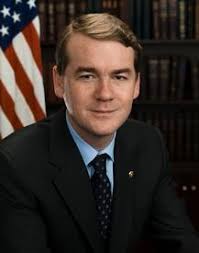By Ravi Nanga
IN managing a case at the case management conferences, one of the orders that the judge will make is for the filing of witness statements.
Before the coming into force of the Civil Proceedings Rules, a witness would have to give his evidence orally in court before the judge, which was time consuming, as the judge would have to sit and listen to the witness give his evidence.
In matters that involved multiple witnesses, this process could have gone on for days. With the filing of witness statements, the witness is now able to reduce the evidence that he would have otherwise given orally into a witness statement, thereby saving precious court time.
However, in preparing a witness statement, there are rules of evidence that operate, so that the witness statement must comply with those rules. Failure to comply with those rules may lead to parts of the witness statement that do not comply, being struck out from the witness statement. Further, as we have seen in the past, it was important when preparing the statement of case or the defence to include all relevant matters necessary to establish the particular case.

Witness statements are prepared and filed in support of the statement of case in the case of the claimant or in support of the defence in the case of the defendant.
The importance of including all relevant matters in these documents is because if a particular matter is important to the case, and is not contained in these documents, if an attempt is made to include evidence in respect of an issue that was not contained in these documents, such evidence will be liable to be struck out.
A witness statement must only contain matters that are within the personal knowledge of the witness. In the event the witness wishes to give evidence of something that he was told by someone else who is not giving evidence, there are certain procedures that need to be followed, failing which that type of evidence can be struck out from the witness statement. Further, where a witness intends to rely on documents, he can attach such documents to his witness statement. Again, these must be documents prepared by him, or documents that have been agreed by the parties. Similarly, if the witness did not prepare a document that he is attempting to get into evidence, that document is liable to be struck out, unless certain procedures are also followed.
If after the filing of the witness statement, additional matters arise that could not have been dealt with in the witness statement, the witness can file a supplemental witness statement in order to address such new matters. Further, if between the filing of the witness statement and the trial there are new matters that have arisen that could not have been addressed in a supplemental witness statement, the witness can seek permission of the Judge to give such evidence orally at the trial. This is referred to as amplifying the witness statement. This procedure can also be used where the witness wishes to expand on a matter that is contained in the witness statement.
In the event a witness is not available to prepare a witness statement by the time fixed by the judge, and will not be available for some time, or is too busy to sign the witness statement, the attorney can ask for permission to file a witness summary.
A witness summary can take two forms. Firstly, if the witness prepared an earlier statement, a draft witness statement can be prepared using the statement that was earlier provided. Secondly, if there is no previous statement, a list of questions can be filed, and the witness will then be asked these questions at the trial in order to tender the evidence into court.
Should a party fail to file a witness statement or a witness summary by the date fixed by the judge, then that party will not be allowed to lead evidence at the trial.
This is a serious matter, as in the absence of evidence to support one’s case, the party risks having the matter decided against them. In the event a party is of the view that they will not be able to file the witness statement or witness summary in time, the most advisable course to adopt is to apply for an extension of time in order to file the witness statements or witness summaries.
In the event no extension is sought and the party failed to file his witness statements or witness summaries in time, that party can still apply for what is referred to as relief from sanctions.
However, such applications are stringent and there must be good reason for not having filed the witness statements or witness summaries before the judge will be prepared to allow the party another opportunity to file their witness statements or witness summaries.
Witness statements are an important step in the life of a matter.
Accordingly, great care must be taken in preparing witness statements, and the applicable rules must be complied with. Witness statements provide the necessary evidence that allows a party to prove their particular case.
Ravi Nanga is an attorney-at-law.
[Please note that this article is intended only to provide general information on the topic being addressed and should not be taken as providing legal advice. In order to be properly advised it will be necessary for an attorney to examine the relevant documents and obtain the necessary instructions before properly advising as to rights and obligations.]
![]()











